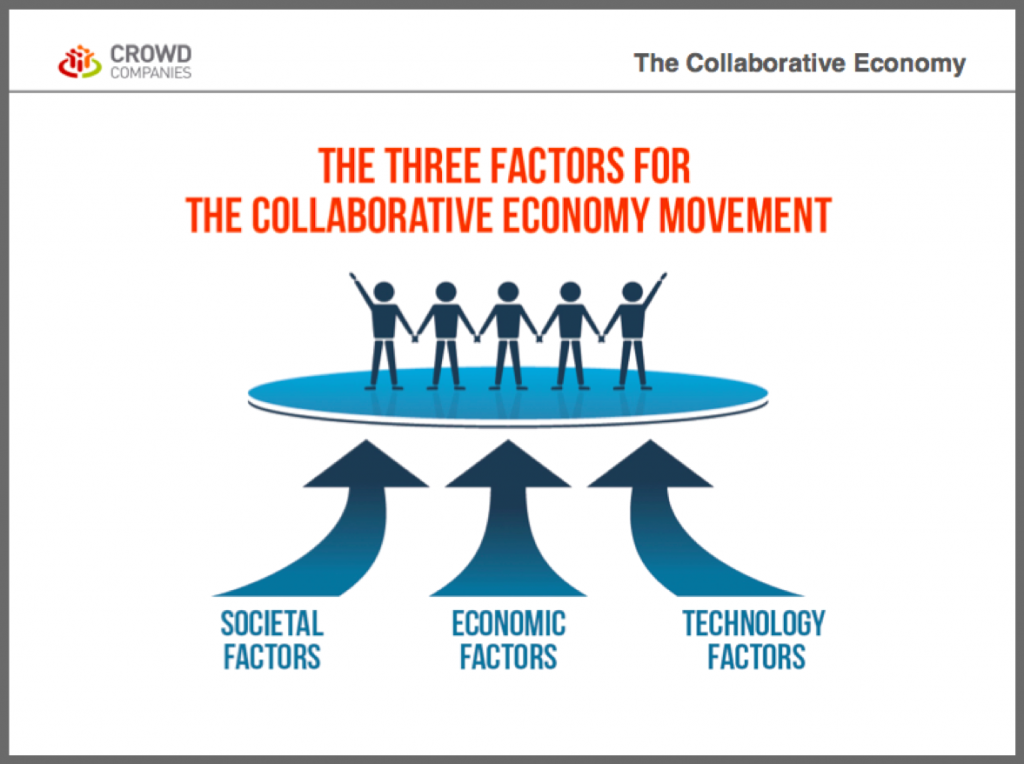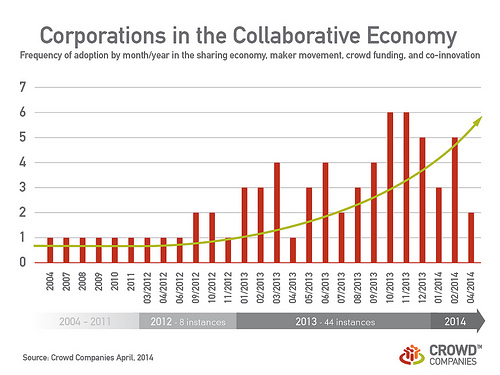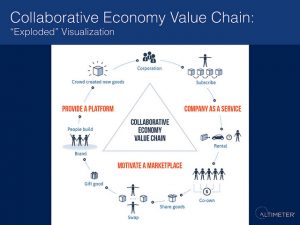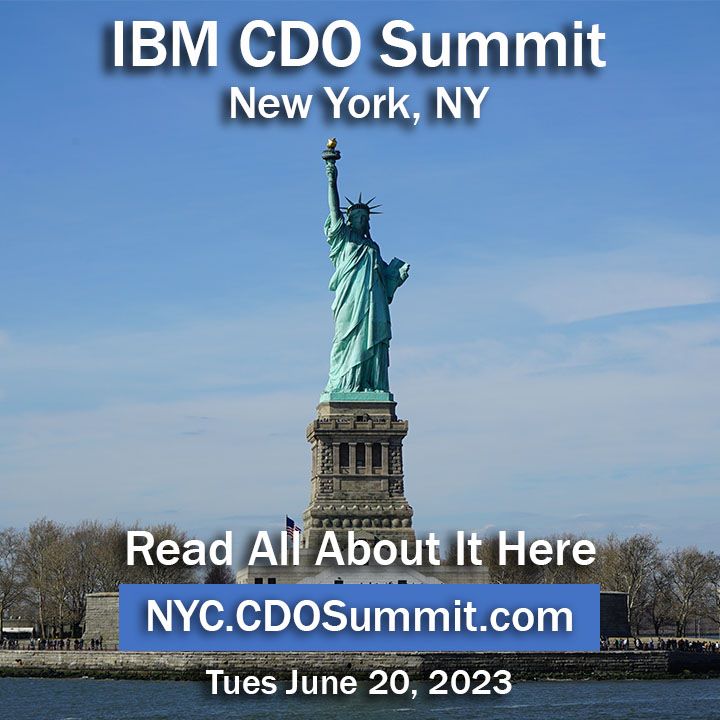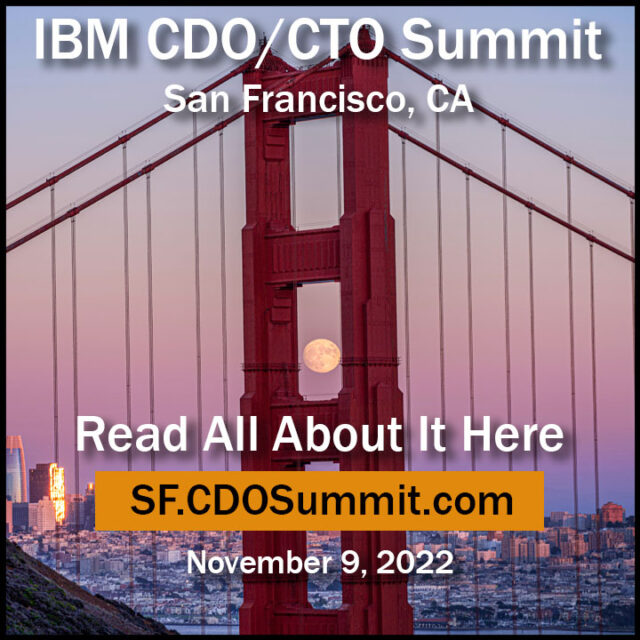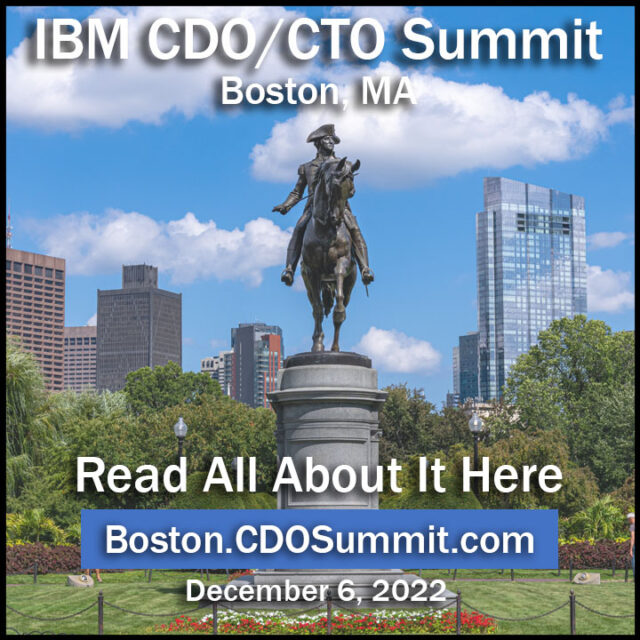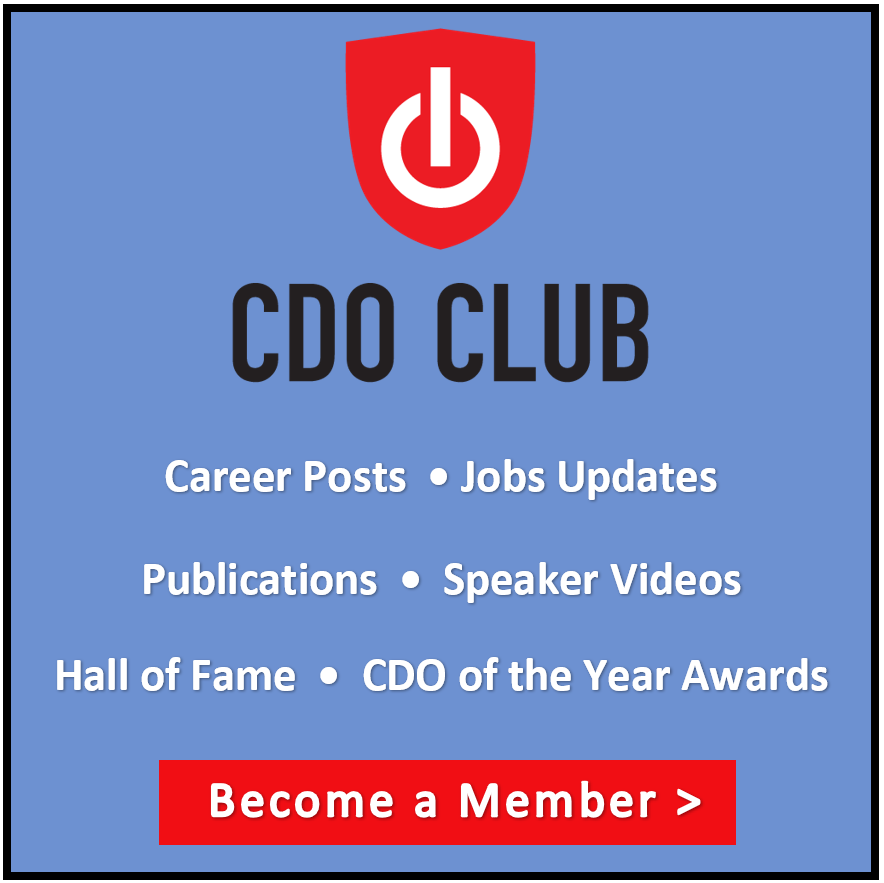Analysts agree that more Chief Digital Officers will be hired in 2015 than ever before, continuing the trend predicted by CDO Club founder David Mathison that the number of CDOs would double every year.
So many Chief Digital Officers are being hired for a reason—usually to deal with digital disruption.
According to Capgemini and the MIT Center for Digital Business:
- Since 2000, 52% of Fortune 500 companies have gone bankrupt, been acquired, or ceased to exist;
- 48% of successful companies relied on hiring specialist digital talent in the wake of a disruption, breach, or hack.
 And today a large part of that disruption is coming not from large competitors, but rather from the people formerly known as your customers:
And today a large part of that disruption is coming not from large competitors, but rather from the people formerly known as your customers:
- It took Hilton Hotels 93 years to build an inventory of 600,000 rooms. Airbnb got there in just 4 years and now has 900,000 rooms around the globe, from everyday people, many of whom were previously customers;
- BlaBlaCar now transports more than 2 million people every month, more than the number of people transported monthly by Eurostar;
- Five-year-old Uber is one of the fastest-growing logistics companies, but it doesn’t own a single car, truck, or town car, and is valued at $43 billion;
- LendingClub enables P2P loans, and has completed over $7 billion in loans in 5 years–without having a single physical branch;
- Crowdfunding enables peers to fund new projects, businesses, and media, and has raised $16 billion last year–without a single physical banker involved.
Welcome to the Collaborative Economy: an economic model where commonly available technologies enable people to get what they need from each other.
People are bypassing inefficient corporations to share goods, services, space, and money with each other.
Just take a look at the transportation industry to see how deep the level of disruption really is: People are sharing rides via BlaBlaCar, hiring private drivers on Uber, renting from Zipcar, and, soon, they may even be 3D printing their own vehicles.
As with almost all digital disruption, incumbent organizations can choose either to fight the trend (and perish) or to hire a Chief Digital Officer to take advantage of it.
This is where Jeremiah Owyang comes in. He’s the founder of Crowd Companies and will be a featured speaker at the Chief Digital Officer (CDO) Summit, on April 29, sponsored by Capgemini.
Owyang has spent the last few years researching and even living in the Collaborative Economy. At one point he was able to use shared services to such a degree that he purchased fewer than 10 items in a three-month time span (not including food, personal/health care, and business travel).
The vast body of work that resulted from his research is available here.
Owyang found over 13 distinct drivers behind the Collaborative Economy. “If these market drivers are long-term (often social and economic drivers are), then this movement is likely to persist and to potentially increase in velocity,” he concluded.
Since this is likely a long-term trend, corporations have two options: they can either fight or adapt. Ignoring disruption will likely result in their organizations–and yours–going the way of Blockbuster and newspaper classifieds.
Some organizations have chosen to battle this trend with lobbying or marketing. The city of Amsterdam has reacted to Airbnb, a home-sharing service, by cracking down on people renting their homes without hotel permits. Taxis went on strike in London to protest Uber. Owyang believes these efforts are pointless; “it’s hard to stop a movement that’s pinned off the Internet. It’s an unstoppable force!” For example, Uber reported a wave of signups after a London taxi strike left commuters stranded.
[bctt tweet=”It’s hard to stop a movement that’s pinned off the Internet: it’s an unstoppable force! @jowyang @CrowdCompanies http://ow.ly/MBcIX” via=”no” url=”no”]
The Collaborative Economy isn’t going away. So how should CDOs respond?
Owyang lists three reasonable options that Chief Digital Officers have to respond to this disruption:
- Acquire the startups: Just like Avis acquired Zipcar. This can be costly, however, as “investors are in love with the collaborative economy,” Owyang wrote. His analysis of funding activity from January to September last year found a sum total of $2.7 billion invested in the Collaborative Economy in that short period alone.
- Integrate your business model: Owyang has discovered over 80 traditional businesses that have embraced collaborative practices. Automakers like BMW and Volkswagen now offer car shares. Others simply partner with startups, as GE has done with Quirky.
- Build your own marketplace: In this final, advanced stage of collaborative transformation, “corporations allow the crowd to collaborate on core business functions, such as design, funding, marketing, development, production, delivery, and sales,” Owyang explains. Kickstarter is a prime example of this.
Rather than fighting to compete with your customers, “in the most advanced form of the Collaborative Economy, the crowd becomes the company,” Owyang explains. “The most advanced-use case is when corporations allow their customers to participate in core business functions. We call this Provide a Platform.”
Companies used to purely provide products, then those products eventually became services. But now the most advanced digital adapters build marketplaces and platforms to collaborate directly with their customers.
This change is already happening. Nike is allowing customers to design their own shoes. Apple offers refurbished products, bypassing resellers like eBay. Even 110-year-old Dodge allowed its customers to crowdfund the purchasing of a new car with a wedding-like registry.
[bctt tweet=”In the most advanced form of the Collaborative Economy the crowd becomes the company @jowyang @CrowdCompanies http://ow.ly/MBcIX” via=”no” url=”no”]
“Corporations that tap a broad, diverse crowd of customers, prospects, and partners for innovation are able to quickly create new ideas, solutions, and products beyond the scope of the more narrowly defined capabilities of a dedicated product team,” Owyang wrote, comparing collaborative organizations to diverse, sustainable ecosystems.
 At a session titled “2015: The Year of the Crowd,” presented at the LeWeb conference in Paris, Owyang unveiled a Collaborative Economy Honeycomb graphic containing 12 sectors that have been impacted by P2P commerce. The original graphic only contained six, yet the number of industries and verticals affected by the collaborative economy is certain to grow.
At a session titled “2015: The Year of the Crowd,” presented at the LeWeb conference in Paris, Owyang unveiled a Collaborative Economy Honeycomb graphic containing 12 sectors that have been impacted by P2P commerce. The original graphic only contained six, yet the number of industries and verticals affected by the collaborative economy is certain to grow.
The collaborative economy is a long-term trend that Chief Digital Officers and executives ignore at their own peril. This is why the CDO Club is featuring Jeremiah Owyang in the Chief Digital Officer (CDO) Summit on April 29, 2015, at Thomson Reuters in New York City, to discuss the Collaborative Economy and how CDOs should respond.
All previous CDO Summits have sold out of attendee tickets, weeks in advance. If you can’t afford to miss this essential discussion, register now at http://nyc.cdosummit.com/register.
– By Andrzej Sienko
— #30# —
NOTE: The CDO Club is now a membership site. You’ll need to register in order to continue enjoying our posts. To register or for more information, click here.
If you are tasked with understanding what digital leaders must do in order to succeed in almost any industry, the best place to learn more is at the Chief Digital Officer Summit.
Take advantage of our Super Early Bird Discount for Amsterdam, London in October 2015, Sydney in February 2016, NYC in April 2016, and Toronto in July 2016. Reserve your place now:
The CDO Summit is the “must-attend” digital event of the year. The 2013 and 2014 CDO Summits received stellar endorsements from dozens of speakers and attendees alike:

“The Chief Digital Officer Summit was engaging as much as it was informative. Bringing these incredible leaders together in one place and for one day speaks to David Mathison’s extensive network, his ability to understand the needs of his clients, and to be ahead of the curve in this important space. It was a great use of my time, and I learned more than I ever thought I would. Great networking as well!”
Sandy Soto
VP Executive Talent AcquisitionHSNi

“The Chief Digital Officer Summit was a very relevant topic for today’s times. I was impressed by the caliber and diversity of the panel speakers, all of whom had something unique and valuable to offer. A great opportunity to learn from the best.”
Amanda Jones-Orengo
DirectorTowers Watson
Director

“Sometimes a conference comes along that hits the trifecta – hot topic, high-caliber attendees, and stellar location. The first Chief Digital Officer Summit reached that mark with ease, and I look forward to attending the next one.”
Eric Hellweg
Managing Director, Digital Strategy/Editorial DirectorHarvard Business Review

“The Chief Digital Officer Summit was outstanding. Why? Candid panels with top players in the digital community. Splendid break-time conversations. And, savvy facilitation, Mathison Style.”
Margaret Molloy
Chief Marketing OfficerVelocidi


